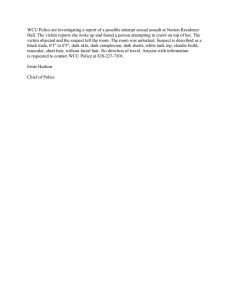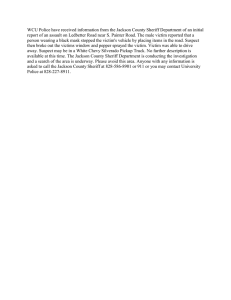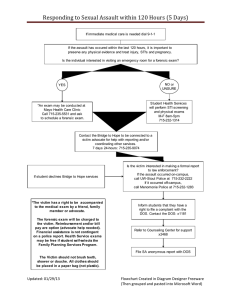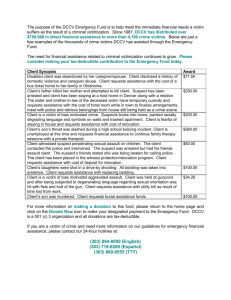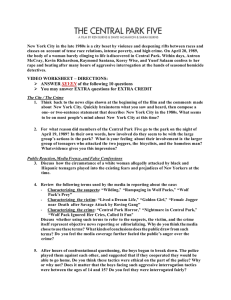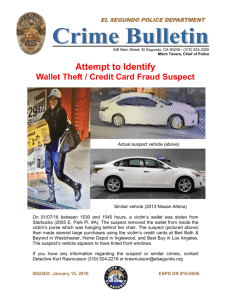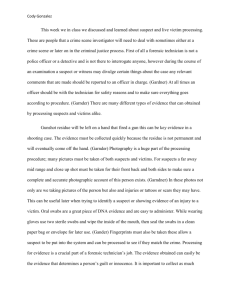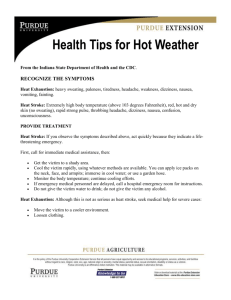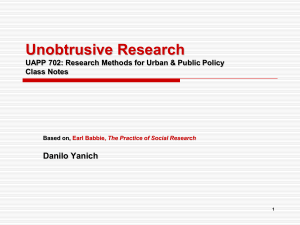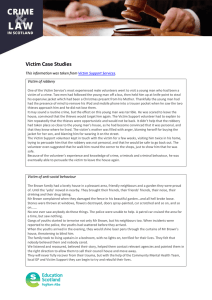Police in America
advertisement
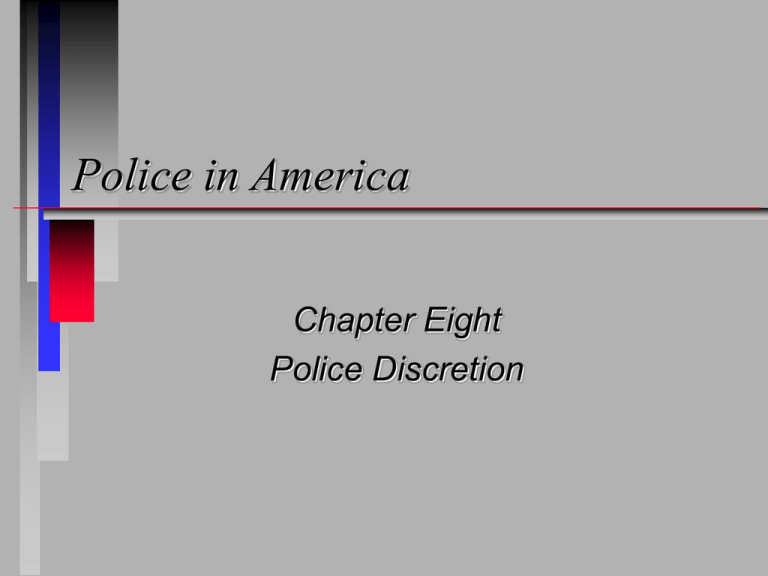
Police in America Chapter Eight Police Discretion Discretion Definition of discretion • Official action • By a criminal justice official • Based upon that individual’s judgment about the best course of action Factors influencing discretionary decisions Seriousness of the crime • The more serious, the more likely an arrest Preference of the victim Relationship between victim and suspect • Arrests are more likely when victim and suspect are strangers Strength of the evidence • The stronger the evidence, the more likely to arrest Demeanor of the suspect • Disrespect toward the police means arrest Characteristics of the victim • Moral judgment of the officer of the victim Factors influencing discretionary decisions The influence of race and gender • Black suspect, white victim • Behavior of a female victim Police-Citizen Interactions • Citizens reaction to officer request – – – – No resistance Slight resistance Moderate or high resistance Violent or explosive resistance The neighborhood environment • High crime or low crime areas Factors influencing discretionary decisions Characteristics of the individual officer • Does not appear to have a major influence on police behavior Official Department Policy • Powerful influence Informal organizational culture • Watchman • Legalistic • Service Local political culture • Community priorities Control of discretion Professionalization of the police Written policies • Written rules • Policies • SOP Civilian oversight S.O.P.
